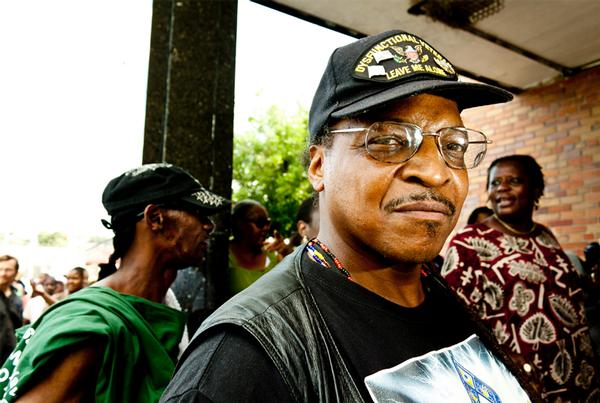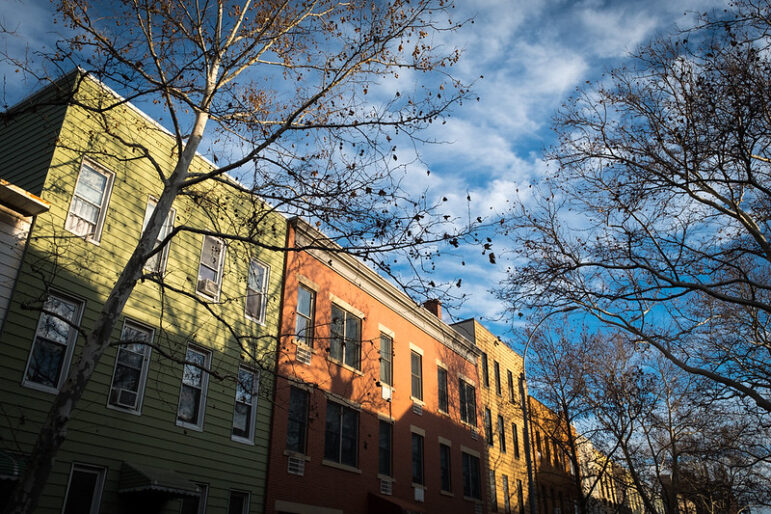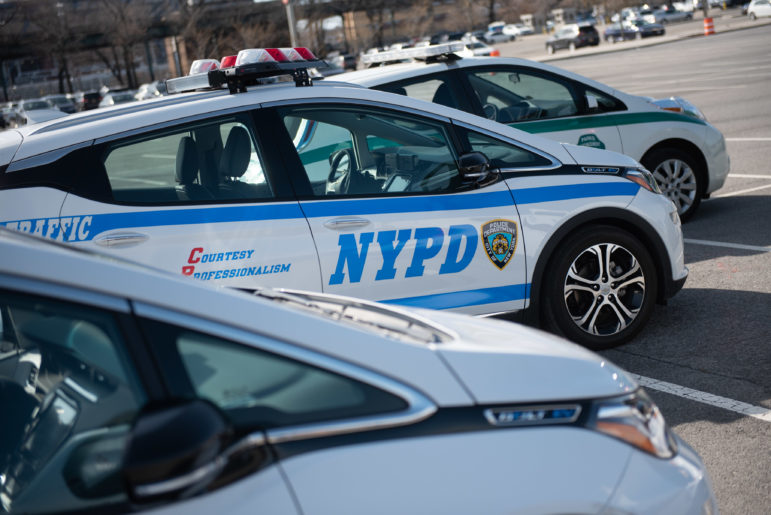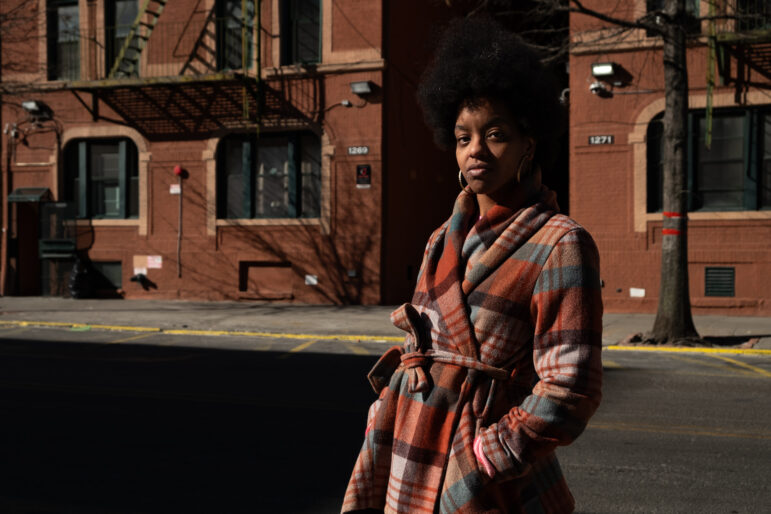
Photo by: Adi Talwar
Joe Petty says he usually waits until the last week before the election to pick his candidate, and this year is no different.
This article is an installment in The Five Borough Ballot, a collaboration between City Limits, City & State and WNET’s MetroFocus. In each edition of the print and video series, we return to a location in each of the five boroughs to ask real New Yorkers their take on the 2013 election as it unfolds. For a complete overview of the series, go here
Brownsville came home last Friday to a broad, sunny stretch of Linden Boulevard between the local recreation center and the railyards. The annual Reunion Night, celebrating its 50th year, brought former neighborhood residents from as near as Queens or Harlem and as far as Virginia, Florida and Texas. There was a fish fry, and music by acts like Harold Melvin’s Blue Notes. Linden Boulevard was ceremonially re-named for Greg “Jocko” Jackson, a beloved community leader who died last year.
And unsurprisingly—with a good crowd on hand and only 46 days to go until the primary election—local politics made an appearance as well. District Attorney Charles Hynes worked the dinner line as his opponent, Ken Thompson, arrived to do the same. Friendly teenagers sought names and numbers of potential volunteers for Bill Thompson’s mayoral campaign.
In the line for dinner, which snaked slowly but patiently around the side of the rec center, some residents said the mayor’s race wasn’t on their mind. “I can’t give any information about that,” one woman in her 30s, who declined to give her name, said politely. “I don’t know who’s running now.”
Shaundel, a 35-year-old father of four, said he couldn’t vote because he’s “in the [criminal justice] system,” but made it clear that even if he could, he wasn’t sure that the ballot box is what matters. Shaking his head at a few people trying to cut into the dinner line, he said, “When we start caring about each other, something will change.”
But Joe Petty, wearing a broad smile and a biker jacket, said that while he was undecided about whom he’d support—he usually doesn’t choose until the final week before an election—he was sure he would vote.
“I always vote,” said Petty, for whom public safety issues loom large. “I just look to anyone who leans that way—quality of life, holding it together. Then I make my choice.”
An unscientific sampling of the crowd on reunion night found Petty’s position to be the most common: committed to voting, but not yet to a candidate.
“When September comes,” said Ann Murrell, seated in a lawn chair eyeing campaign literature as she waited for the music to start, “then I’ll make up my mind.”








